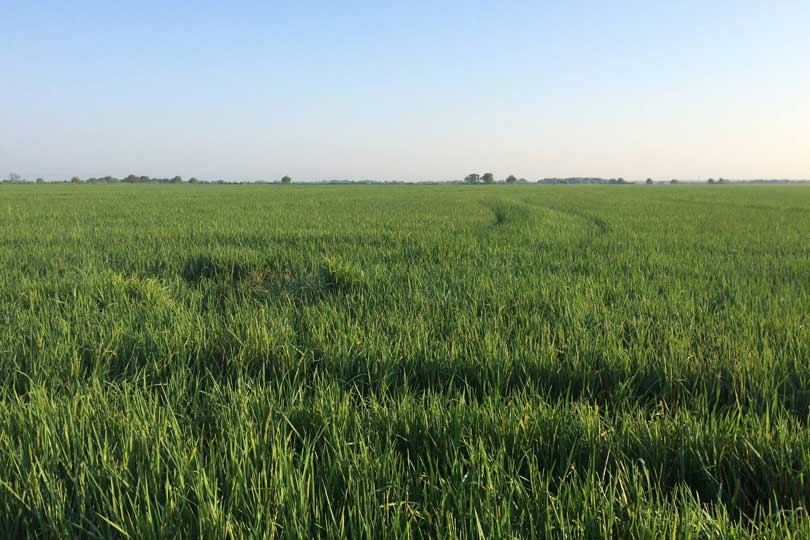By Justin Walker
Communications Specialist
New research could help Texas rice growers deal with inconsistent weather patterns.
A recent study conducted by a team from Cornell University, with help from researchers in Japan, have identified why some deep-water rice varieties survive in flood-like conditions.
Rice is traditionally grown in fields of standing water called paddies, but too much water can be harmful to the plant, Susan McCloud of Cornell said in an interview with the U.S. Department of Agriculture (USDA).
“It completely submerges the plant. Then, most varieties of rice will die,” she said. “They can’t breathe at all. They need to have some growing point—some part of their leaf or stem—above the water.”
Deep-water rice varieties are grown all around the globe, most notably in Southeast Asia. It is common for this region to receive large amounts of moisture, often flooding rice paddies. The varieties grown there will sense this and change to meet the environment, McCloud said.
“When it senses that it’s submerged, these varieties send out a signal that makes the plant start to grow really fast,” she said. “When the floods stop rising, then the plant literally floats on the top of the water.”
Harvest usually takes place by water in these situations, McCloud said.
The unique aspect of this is the plant’s reaction to the change in environment, she said.
“It is able to respond appropriately,” McCloud said. “It’s a quantitative response. In other words, it’s adjusting its response to the severity of the environmental conditions.”
Rice growers in Texas could benefit from the discovery of this rare gene mutation.
The gene could be used in local rice varieties to survive challenging growing conditions, such as areas where flooding and drought can occur in the same growing season.
“That means that we have to breed in drought tolerance and submergence tolerance, or deep-water rice ability, into the same varieties,” McCloud said. “We don’t want those varieties putting energy into a response that is not appropriate.”
It would be ideal for the plant to respond in the correct way to its surrounding environment, either extreme drought or flooding, she said.
Texas rice growers would benefit from such a variety, because often both weather patterns can be experienced in the growing season.

